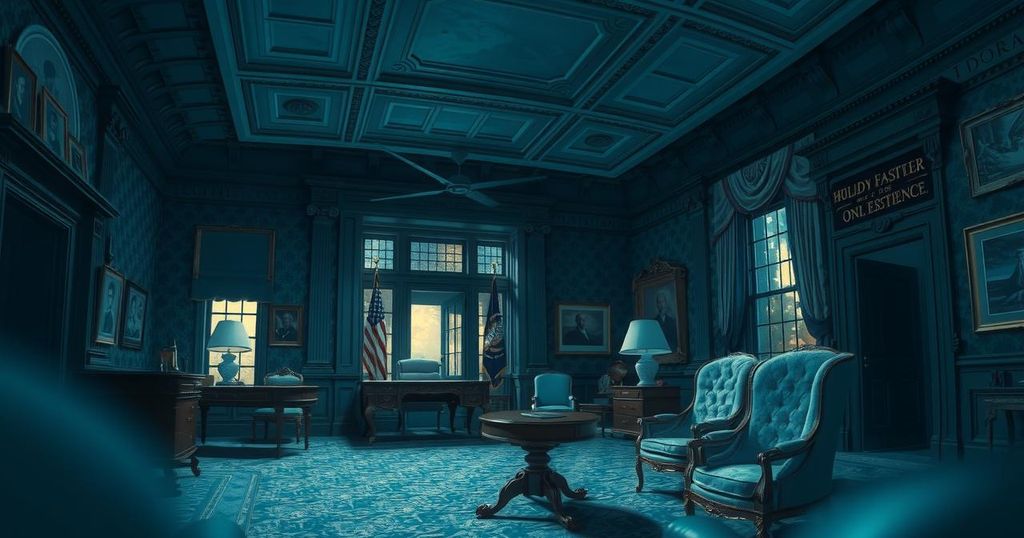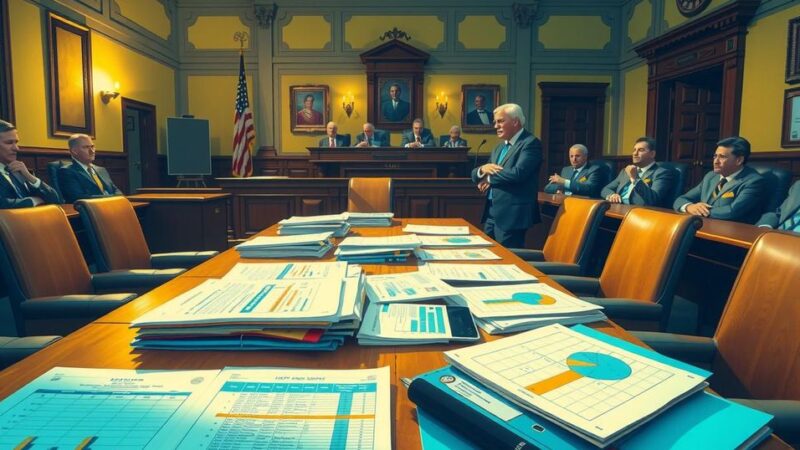South African President Cyril Ramaphosa confronted U.S. President Donald Trump during a White House visit, as Trump falsely claimed to show evidence of white genocide. The tense exchange emphasized the complexity of diplomatic discussions surrounding sensitive topics. Ramaphosa’s response sought to clarify misconceptions about South Africa’s social issues, marking a significant moment in U.S.-South Africa relations.
During a recent visit to the White House, South African President Cyril Ramaphosa found himself embroiled in a sharp exchange with U.S. President Donald Trump. The incident unfolded when Trump presented video footage that he claimed depicted proof of white genocide, a highly controversial statement that has been widely debunked. Ramaphosa, clearly taken aback by the assertion, responded vehemently, urging for a more accurate depiction of the situation back in South Africa.
This tense confrontation marked a significant moment during Ramaphosa’s trip, which aimed to strengthen diplomatic ties. Instead, he faced untenable accusations that many believe perpetuate harmful misconceptions about South Africa’s issues related to land reform and racial dynamics. Trump’s claims, seemingly pulled from misinformation, caught Ramaphosa off guard, prompting him to maintain that these narratives misrepresent the ongoing challenges in his country.
The encounter not only highlighted differing perspectives on social and political issues but also underscored the complexities of international diplomacy. Following the meeting, criticism arose surrounding Trump’s approach. Analysts suggest that such rhetoric, especially regarding sensitive topics like race relations in South Africa, may set back progress in their relationship and further inflame public perceptions.
As Ramaphosa attempted to clarify and counter Trump’s narrative, the exchange shifted from a potential diplomatic dialogue to a heated discussion, reflecting broader tensions. His insistence on discussing the real state of affairs, rather than sensationalized reports, sought to steer the conversation back towards collaboration, focusing on solutions rather than divisive discourse.
This incident serves as a reminder of the challenges leaders face when engaging in dialogue over incendiary topics. The back-and-forth not only received media coverage but also ignited discussions online about the importance of fact-based discourse in political conversations, especially concerning sensitive societal issues. As observers await further developments, the implications of this tense meeting could resonate beyond the walls of the Oval Office.
In conclusion, President Cyril Ramaphosa’s recent encounter with President Donald Trump at the White House has drawn attention to the complexities of diplomatic dialogue, particularly regarding sensitive issues. Ramaphosa’s pushback against Trump’s unfounded claims of white genocide reinforces the need for fact-based discussions in international relations. This episode not only highlights the challenges leaders face but may also have lasting effects on U.S.-South Africa relations amid ongoing societal issues.
Original Source: www.theguardian.com






